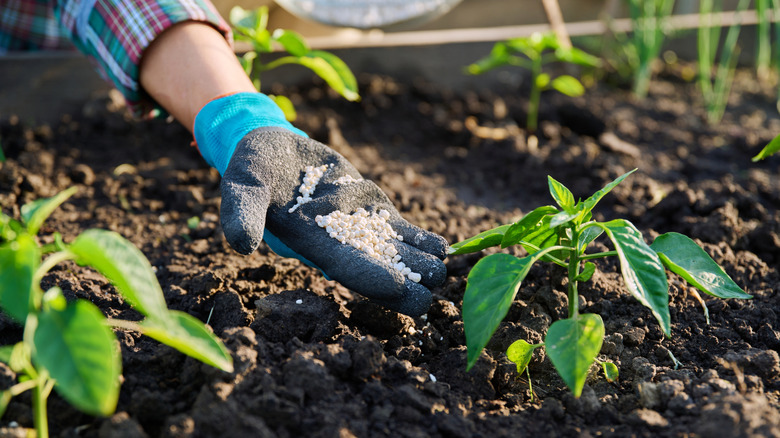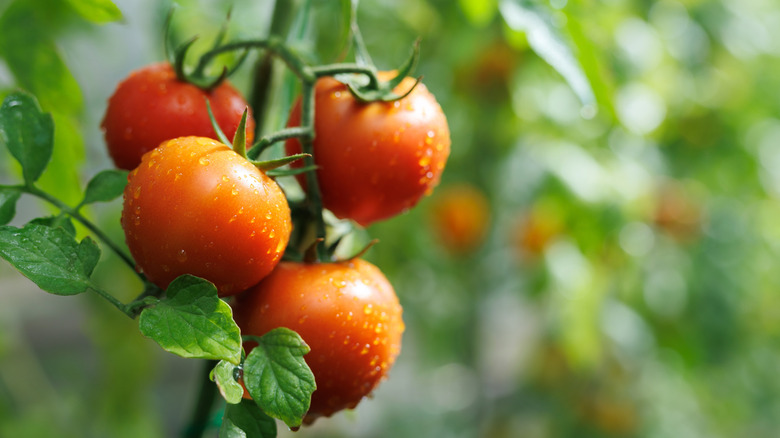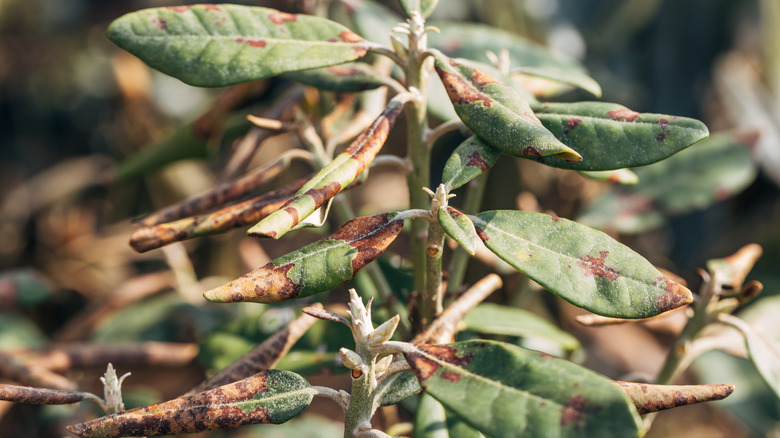Here's When You Should Really Stop Fertilizing Your Garden
You have probably heard a bunch of advice on the importance of feeding your plants at the right time, as well as choosing the best fertilizer for your lawn and garden to promote healthy growth. However, there comes a point of diminishing returns when fertilizers start doing more harm than good for your garden. This usually begins to happen around late summer to fall when the vegetables start becoming ready for harvest and the trees and shrubs begin to enter dormancy. The right time to stop fertilizing can be as early as July in some regions, whereas for others, stopping somewhere around Labor Day is a good rule of thumb.
Fertilizing the plants during the fall disrupts their natural growing cycle. Fall is the time when most of the perennials in your garden enter dormancy. If you keep on fertilizing the soil during this time, it can force the plants into having new growth. This growth is likely to be damaged by cold when the first frost hits your region.
Fall fertilizing can harm annuals and edible plants
When it comes to your summer-blooming annual flowers, although regular feeding is important, there is no point in fertilizing these plants in autumn when they are already past their bloom time. But even with cool-season annuals like asters, fertilizing too late in fall can promote new growth that will be susceptible to colder temperatures.
Apart from the flowering plants in your garden, there comes a time to stop the feed for the edible plants as well. Too much nitrogen can induce more leafy growth in these plants, especially in solanaceous crops like tomatoes, which stop the fruits from ripening. Putting a hold on the fertilizer during fall suggests to these plants that they can shift their energy towards fruit ripening, rather than investing it in the expansion of vegetative growth. Although some gardeners like applying a fall fertilizer to their plants to save time next spring, they only do a full application post-harvest to avoid hindering the fruit-ripening process.
Late fertilizing delays fruit formation and can lead to fertilizer burn
If you're growing fruit trees in your yard, feeding them during autumn can delay the fruit-bearing process, especially in young trees. In the case of young trees, fertilizing can also make them susceptible to harsh winters, as they will be more focused on new growth and not get enough time to harden off before the cold weather sets in. You only need to fertilize fruit trees during the fall if you see particular signs of weak growth or pale leaves.
Furthermore, as opposed to springtime, conditions in fall are drier, which can also affect your plant's ability to handle excess fertilizers during this time and lead to fertilizer burn. Fertilizers, typically the quick-release synthetic ones, tend to become more concentrated in the soil under such drought-like conditions. This can cause plant roots to release more water due to osmosis and get dehydrated. The symptoms of fertilizer burn can be seen as leaf scorch in plants, which primarily happens due to injury to the roots. In case of any confusion, always follow the instructions on your fertilizer package, which include the correct frequency of application as well as the right application methods.


